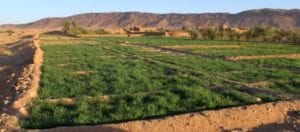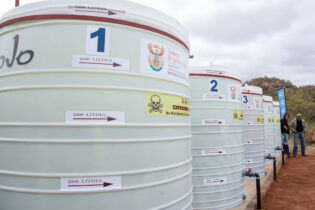Crops grown in the Egyptian desert using treated wastewater are safe for human consumption and their production is economically viable.
This was the conclusion of engineers working on an experimental farm in Gerga, in the Sohag Governorate of Egypt. Their final report, “The Re-use of Treated Sewage Waste Water in Agriculture” contains recommendations for a successful country-wide establishment of wastewater irrigated farms, in support of Egypt’s bit to tackle water scarcity and meet the growing demand for agricultural products. Since its launch in 2013, the pilot project has identified crops and soils suitable for wastewater irrigation and analysed the environmental, social and economic impacts of this method. In the last phase of the project, the engineers conducted a market research on town, province and country level to evaluate the economic viability of wastewater irrigation. Their results show that the total consumption of certain products suitable for wastewater farming exceeded domestic production by a large margin.To fill that gap, Egypt imports over 725 thousand tonnes of oriental beans and over 85 thousand tonnes of chick peas as well as lentils, maize and vegetable oils.
The growing need for water was the primary driving force behind the experiment, but using wastewater in farming has other benefits, such as preserving the natural sources of water, allowing harsh soil with no nutrients to be used, disposing of sewage effluent and reducing the end product cost. The farm conducted experiments on a range of agricultural crops, including lentils, beans, chick-peas, white figs, olive and pomegranates. Precautions, including dry air treatment, were put in place to ensure consumer-fitness of these products. The 2.5 acres farm was managed by the Egyptian Holding Company for Potable Water and Sanitation in Cairo and financed by the United Nations Environment Programme through the wastewater project of the Global Programme of Action for the Protection of Marine Environment from Land-based Activities (GPA) and the Italian Ministry of Environment, Land and Sea.






